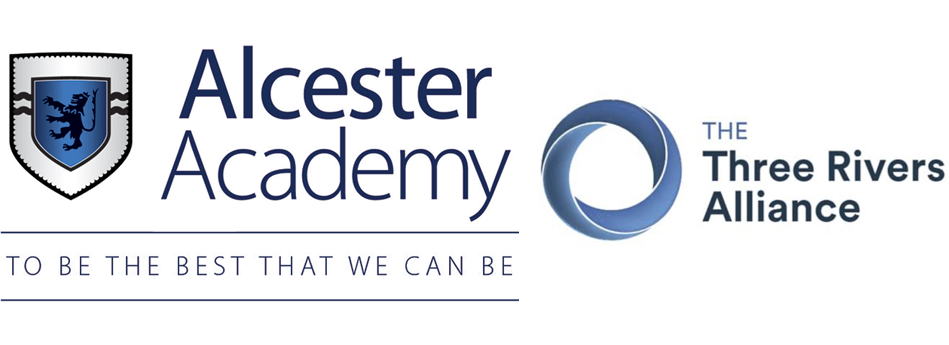Design Technology

Design Technology
Miss A Wincup: Teacher of Design Technology, KS4 Textiles, KS4 Wood, KS4 Hospitality & Catering
amywincup@alcesteracademy.org.uk

Key Stage 3
Curriculum Intent
As a subject area, our primary aim is to build confidence, resilience and to foster a love of learning, experimentation and hard work. Students arrive in year 7 very unsure of their abilities and we decide to return to basics with designing and making, building skills and an awareness of visual presentation. Very quickly, staff are able to identify a range of needs and challenge the more able, at the same time building resilience with those whose confidence threatens to hamper development.
Learners soon realise that they are able to make progress effectively through the personalised programme that we offer. Gradually, technical skills using a range of media evolve allowing students to experiment with materials and a range of processes in particular.
Throughout key stage 3, all learners are encouraged to investigate literacy elements within the subject, researching the work of other designers and becoming aware of their style characteristics, their intentions and the context of the work, both at the time of its creation and also within present-day society, with a strong focus upon ethics and topical issues involving the environment for example. Students also use written and verbal feedback to drive their own and each other’s development through staff and peer assessment. Student responses are prompted through a planned questioning focus during lessons, both on the whiteboard, through verbal interaction and also within PTR sheets in sketchbooks.
All of these features effectively build the skills required for study at key stage 4. The expectation of the department dictates that commitment outside lessons is essential for success; something that we believe prepares all learners for the demands of the new GCSE courses. We also cover the various career possibilities in design & technology through display material in the department.
Curriculum Implementation (see also Long Term Plans)
At key stage 3, we encourage learners to reflect on themselves as people and also those around them.
Much of the work at the beginning of projects is modelled by staff to build confidence and also establish expectations. The department also utilises exemplar work from past and present students and encourages peer coaching to share good practice and drive success.
Projects studied at KS3
Year 7 –
Food – ‘Healthy lunchbox ideas’
Textiles – Upcycled personalised planner cover
Resistant Materials - Moneybox
Year 8 –
Food – Multicultural foods
Textiles – Cushion cover
Resistant Materials - Nightlight
Progress is assessed at a variety of stages and the timings of these are always planned to evidence optimum impact within a student’s work. AfL is personalised and takes on the form of both verbal and written feedback by both staff and peers. Students’ responses drive next steps and staff revisit these to extend the dialogue if appropriate. Data is collected to support reporting windows and use of ATLs closely reflect homework performance, as recorded in the front of sketchbooks.
Curriculum Impact
Learners are fully equipped to pursue their studies at KS4 with confidence gained from their KS3 curriculum rotations. As a department, we have made changes to facilitate experiences encountered within options. For example, electronics has been introduced in year 8 to challenge boys’ interests but also broaden awareness of processes and media within possible GCSE textiles units of work. This also creates links with designers studied at KS4 and supports the use of electronics within textile design as seen through careers displays.
All year 8 students receive comprehensive information and are fully aware of expectations regarding all design & technology subjects through detailed options presentations well in advance of choices having to be made. Again, aspirations are raised through use of successful modelled projects and sketchbooks/folders.
The department IT-based room features the academy’s most up to date machines and software and these drive our new 3D printers. Again, these are used within schemes of work in both key stages to promote design careers. The photography students from art also use Adobe Photoshop on these machines and the software is being introduced into design& technology lessons too.
Cross-departmental links are made with art to ensure that projects are supported across the cluster and are appropriate, for example year 7 students study Pop Art across both subject areas, investigating 2D approaches in art which then drives knowledge and understanding to inspire and challenge 3D designs and production of a Pop Art-style money box.
In year 8, links with art involving Cubism culminate in the design of cubist and art deco night lights, focusing upon the use of plastics and distorted forms.
Textiles in year 9 supports the conflict theme pursued in art, through fashion journal studies and the effect of WW2 rationing upon fashion. There is also liaison with the science department involving advice and CPD opportunities on the use of polymers, something now part of the new curriculum.
Childcare has just begun to forge links with science regarding the timings and methods of similar subject matter delivery across both key stages.
Key Stage 4
Curriculum Intent
In year 9, students begin to study the discreet KS4 courses through a more fostered approach; many of the earliest tasks being introduced as a step by step format, allowing learners to develop ideas and build resilience with greater guidance.
Curriculum Implementation (see also Long Term Plans)
Year 9
‘Conflict’ – This project encourages students to look more closely at war, focusing upon not just military elements but also the impact of conflict on society.
Years 10 and 11
‘The City’
Long Term Plans
DT Hospitality and Catering LTP Year 9
DT Hospitality and Catering LTP Year 10
DT Hospitality and Catering LTP Year 11
DT LTP Year 9
DT LTP Year 10
DT LTP Year 11
Examples of the kinds of assessments to expect: DT Assessment Plan







